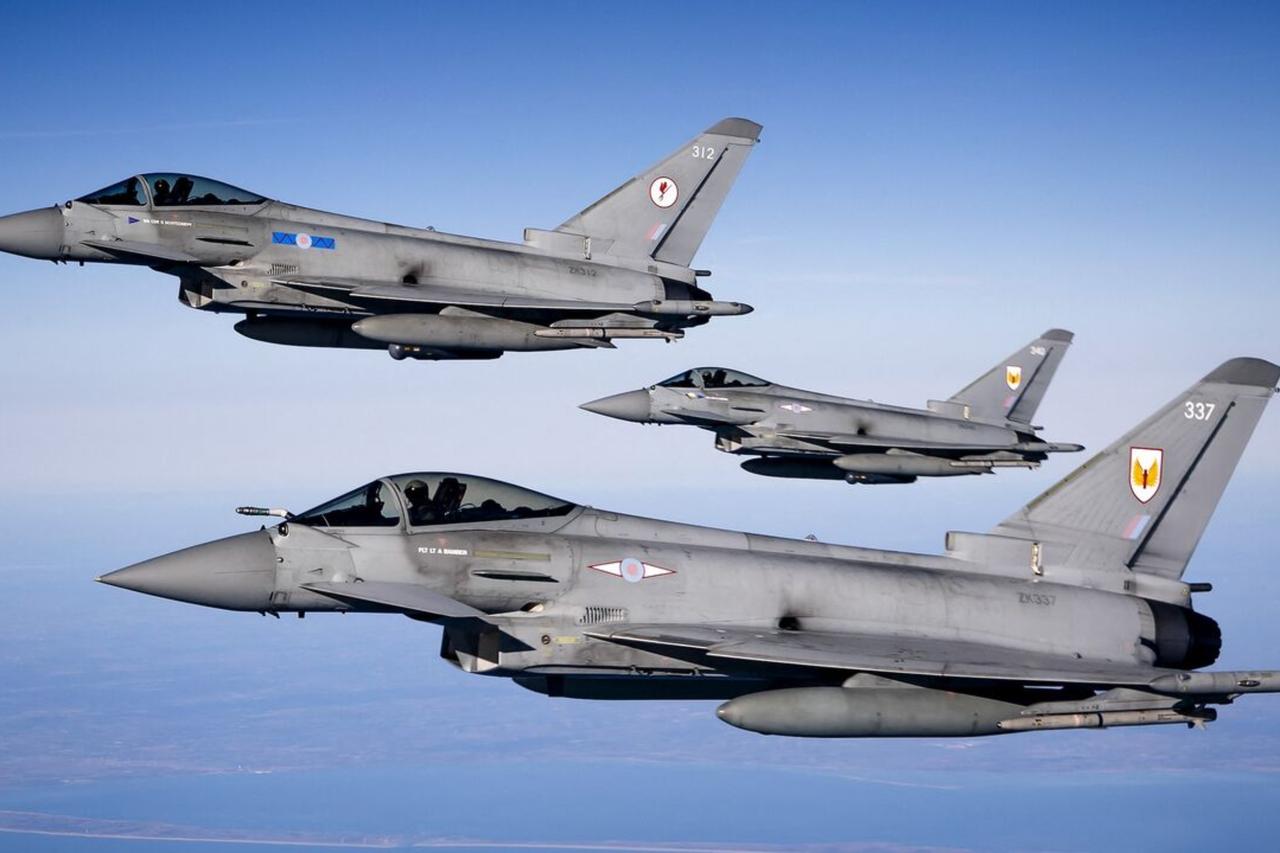
Türkiye secured a major defense acquisition breakthrough as Germany approved the sale of 40 Eurofighter Typhoon fighter jets while Turkish and British defense ministers signed a memorandum of understanding allowing Ankara to operate the advanced combat aircraft.
Turkish National Defense Minister Yasar Guler and U.K. Defense Secretary John Healey formalized the agreement during the 17th International Defense Industry Fair (IDEF 2025) in Istanbul, marking a significant milestone in Türkiye's quest for interim fighter capabilities.
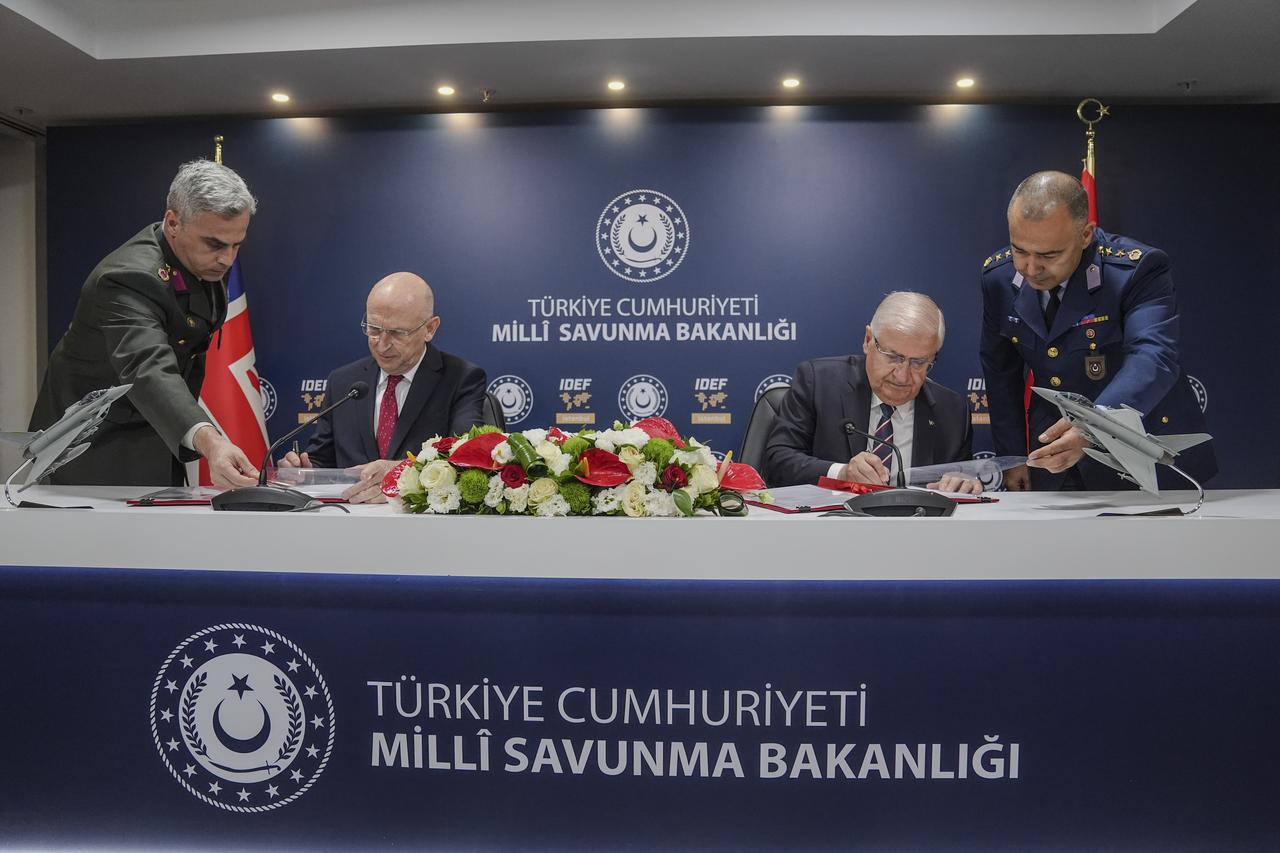
German government spokesman Stefan Kornelius confirmed Wednesday that the Federal Security Council approved Türkiye's preliminary request submitted in March 2023.
"I can confirm that the Defense Ministry has sent a written confirmation to the Turkish government confirming the export approval," Kornelius told reporters in Berlin. "The federal government has responded positively to a preliminary request from industry. The Turkish government must now decide whether it wants to order the aircraft."
The German weekly magazine Der Spiegel reported that the aircraft will be manufactured in the U.K. using parts supplied from Germany, representing the first Typhoon export order secured by Britain since 2017.
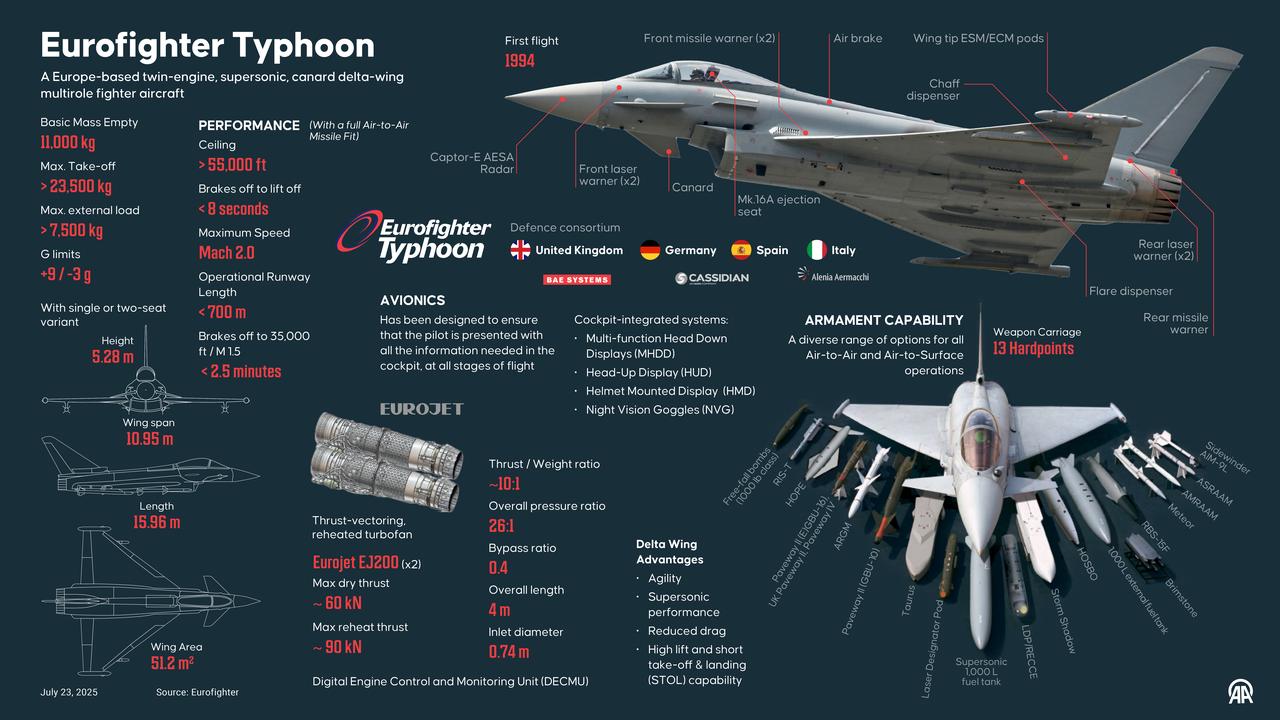
U.K. Prime Minister Keir Starmer emphasized the strategic and economic benefits of the agreement, stating it would "bolster our vital defense industry, deliver on our Plan for Change and keep us and our allies safer during these uncertain times."
Defense Secretary Healey highlighted NATO implications, saying: "Equipping Türkiye with Typhoons would strengthen NATO's collective defense, and boost both our countries' industrial bases by securing thousands of skilled jobs across the UK for years to come."
The U.K. Defense Ministry described the agreement as strengthening NATO's collective deterrence while building on years of defense cooperation and growing industrial ties between the two nations.
Charles Woodburn, Chief Executive BAE Systems, said: "This Memorandum of Understanding between the Governments of Türkiye and the UK underscores the importance of their long-standing defense co-operation through NATO and the critical role Typhoon plays in security and defense in Europe and the Middle East."
"BAE Systems will continue to work closely with the governments of Türkiye and the UK to formalize an agreement for the procurement of Typhoon aircraft and associated supplies in due course," a statement from BAE Systems added.
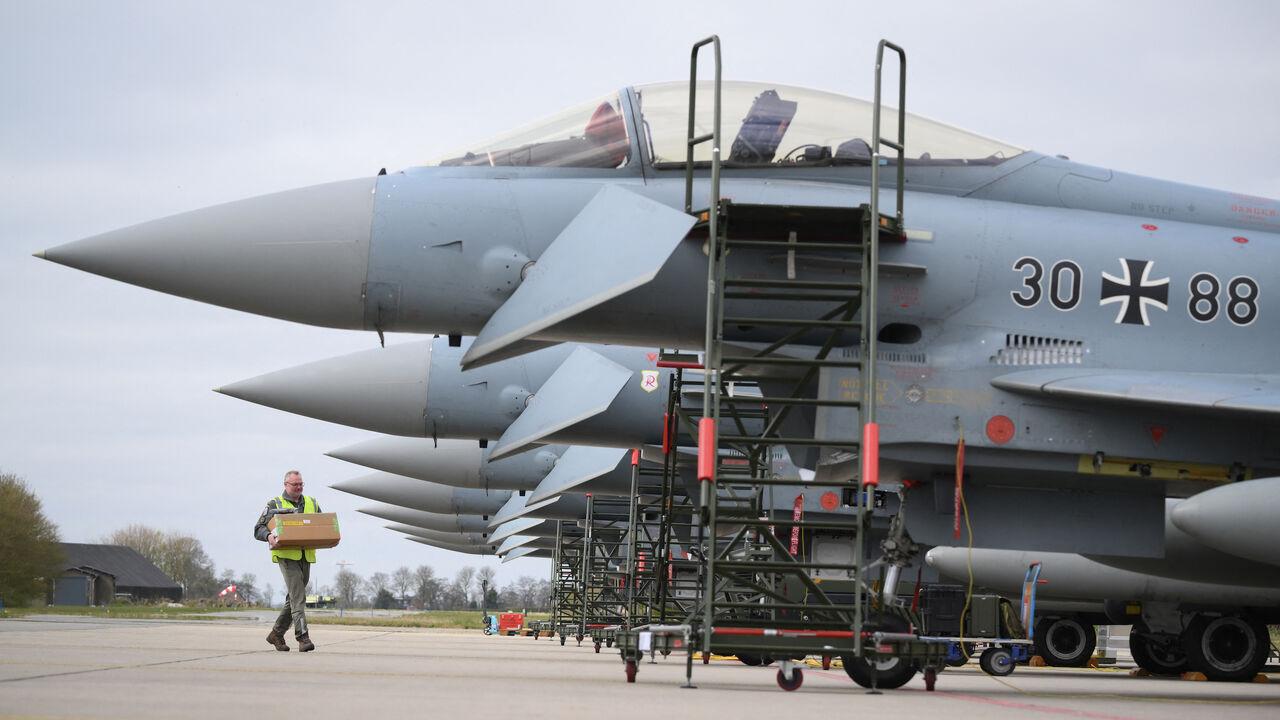
The Eurofighter acquisition addresses Türkiye's need for interim fighter capabilities following its 2019 removal from the F-35 Joint Strike Fighter program.
The agreement serves as a bridge solution until the indigenous KAAN national combat aircraft reaches full operational capability in the 2030s.
Writing to the Anadolu Agency (AA), defense expert Arda Mevlutoglu, an evaluator for the NATO Defense Innovation Accelerator for the North Atlantic (DIANA) 2026 Challenge Program, emphasized the critical timing of this acquisition.
"In a region defined by intense military and technological challenges, preserving Türkiye's deterrent power is essential—positioning the Eurofighter Typhoon acquisition as a critical bridge," Mevlutoglu stated.
The expert noted that recent regional developments have demonstrated the consequences of air power imbalances, explaining that "having an air force significantly weaker than one's rivals is scarcely different from having no air power at all."
Defense analysts note the deal's significance within the broader regional security context, where advanced fighter capabilities have become increasingly critical: "The Turkish Air Force currently fields around 240 F-16Cs/Ds and approximately 25 F-4E/2020s. While the F-4Es underwent extensive modernization in the early 2000s, they are now at the end of their operational life. The F-16C/D fleet, on the other hand, risks falling behind, particularly in radar and electronic warfare capabilities, compared to the advanced platforms entering service with regional air forces. Greece has acquired Rafale fighters from France and is upgrading its F-16s to the F-16V."
"Israel, meanwhile, is on track to receive 75 F-35I fighters by 2028 (with 45 delivered as of June 2025), while also modernizing its F-15I fleet and preparing to procure the next-generation F-15IA. These developments underscore the growing technological and performance challenges facing the Turkish Air Force," Mevlutoglu added.
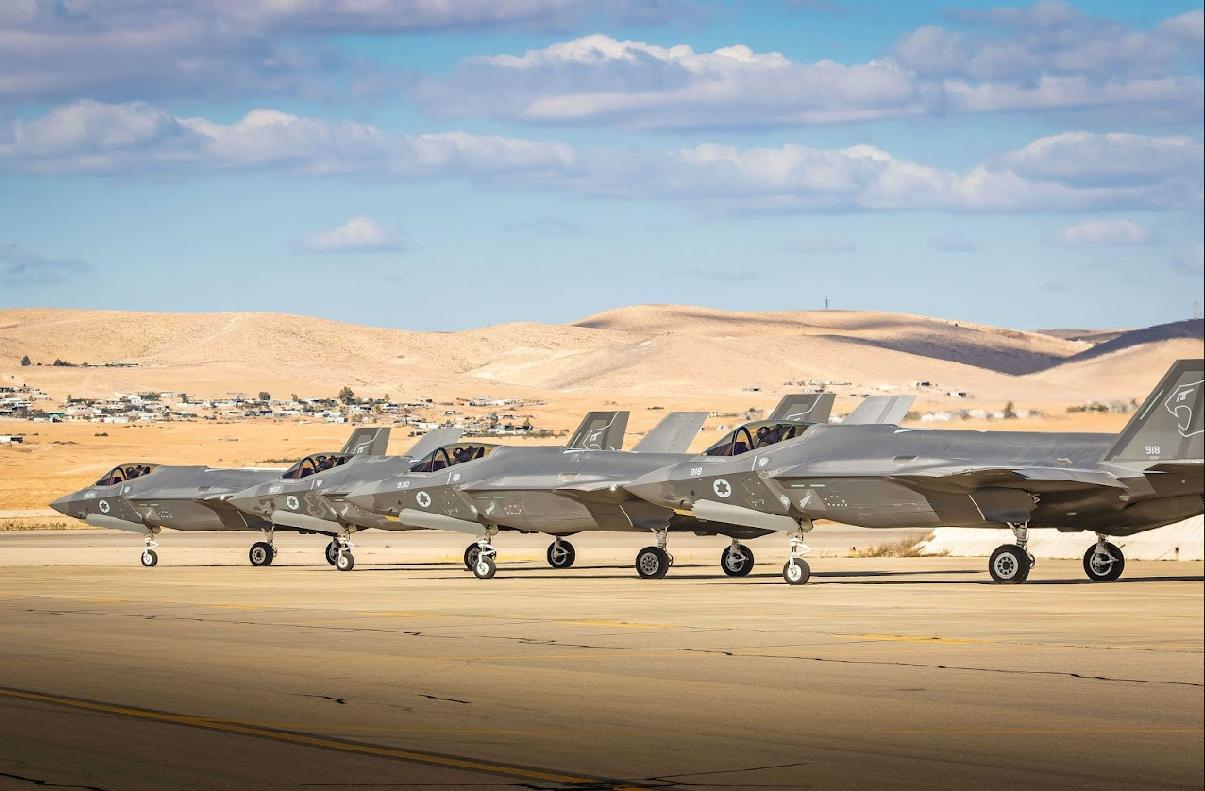
The Eurofighter Typhoon emerged from a multinational European defense initiative launched during the Cold War's final stages. In 1983, air forces from the U.K., Germany, Italy, and Spain defined joint requirements for a next-generation combat aircraft, formally launching the program in 1988. France initially participated but withdrew in 1985 to develop its independent Rafale fighter.
Mevlutoglu noted that Türkiye's relationship with the Eurofighter program spans four decades of intermittent engagement. "In the mid-1980s, during discussions to procure 40 Tornado aircraft from the UK, Ankara was offered equal participation in the then-emerging Eurofighter project, contingent on the deal's completion," he explained.
The expert highlighted that the Typhoon was subsequently proposed to Türkiye "in the early 2000s and again around 2010, along with opportunities for industrial collaboration. However, for various reasons, these offers never came to fruition."
Following the prototype's first flight in 1994 and production approval in 1998, the German Air Force received the first aircraft in 2003. By 2024, more than 600 Eurofighter Typhoons had entered service worldwide with operators including Italy, Spain, Austria, and Saudi Arabia.
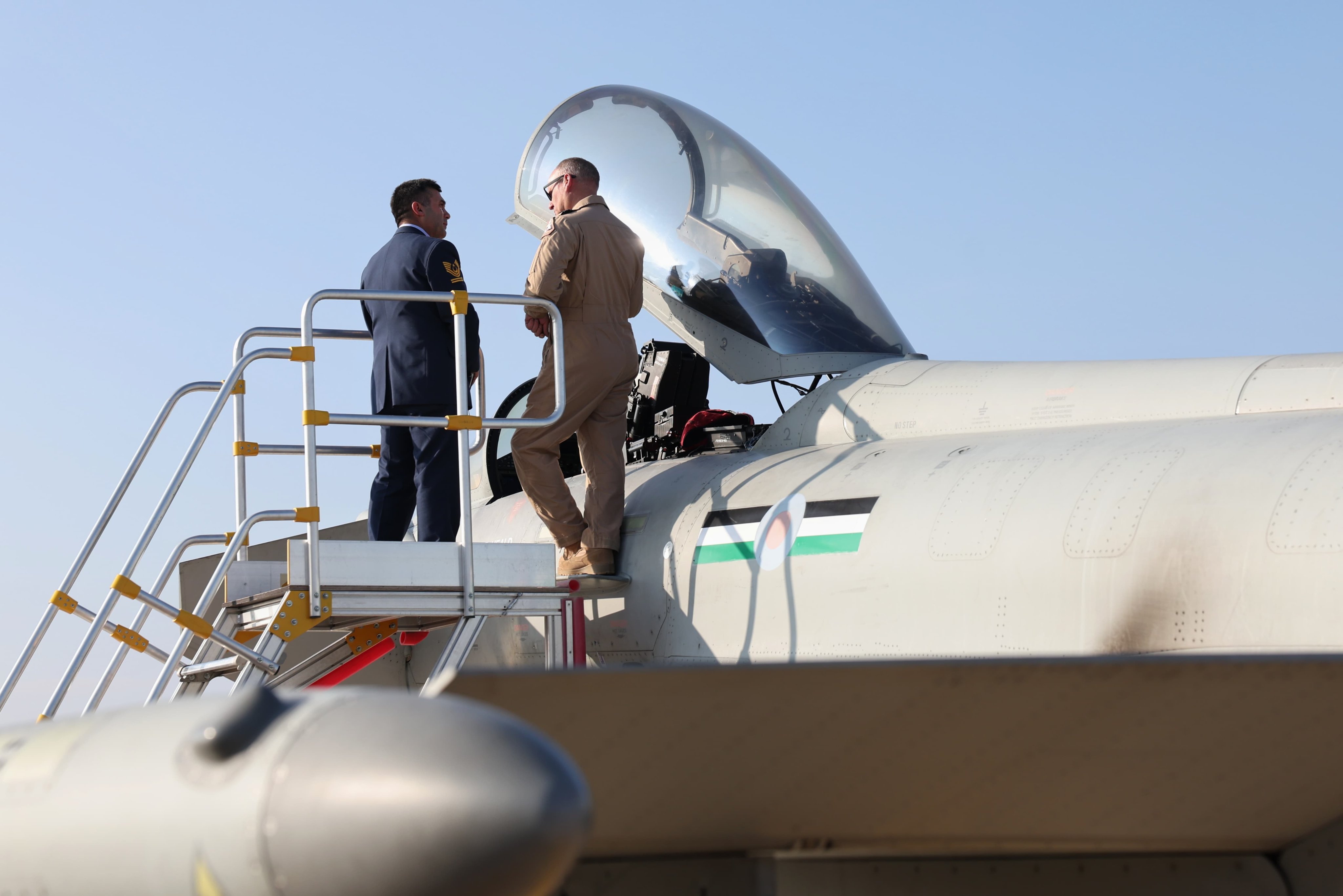
Greek Prime Minister Kyriakos Mitsotakis acknowledged the inevitability of Türkiye's fighter acquisition during a television interview, stating that attempts to prevent defense equipment sales to Türkiye would be misguided.
"Türkiye is a large country with a strong defense industry. If someone believes they can prevent defense weapon sales to Türkiye, they are mistaken," Mitsotakis told SKAI TV. "Such a thing never happened and will not happen."
However, Mitsotakis emphasized the importance of establishing preconditions for aircraft usage and indicated Greece would oppose Türkiye's participation in the European Security Action Plan (SAFE) program, citing Aegean disputes.
The agreement reflects broader changes in European security dynamics and trans-Atlantic relationships. Defense experts identify three key factors enabling the breakthrough: shifting strategic context following Russia's invasion of Ukraine, uncertainty about U.S. commitments to European defense, and Germany's change in government leadership.
The new German Chancellor Friedrich Merz reversed the previous government's opposition to Typhoon sales to Türkiye, citing improvements in Turkish-Greek relations and Ankara's commitment to use the aircraft within NATO frameworks only.
European security analysts suggest the deal could herald increased operational cooperation between Türkiye and European partners, both within NATO structures and in ad hoc coalitions, as the continent seeks to strengthen collective defense capabilities.
The Eurofighter program represents a multinational collaboration between aerospace companies from the U.K., Germany, Italy, and Spain. The Türkiye deal would significantly boost production for the consortium led by Airbus, BAE Systems, and Leonardo.
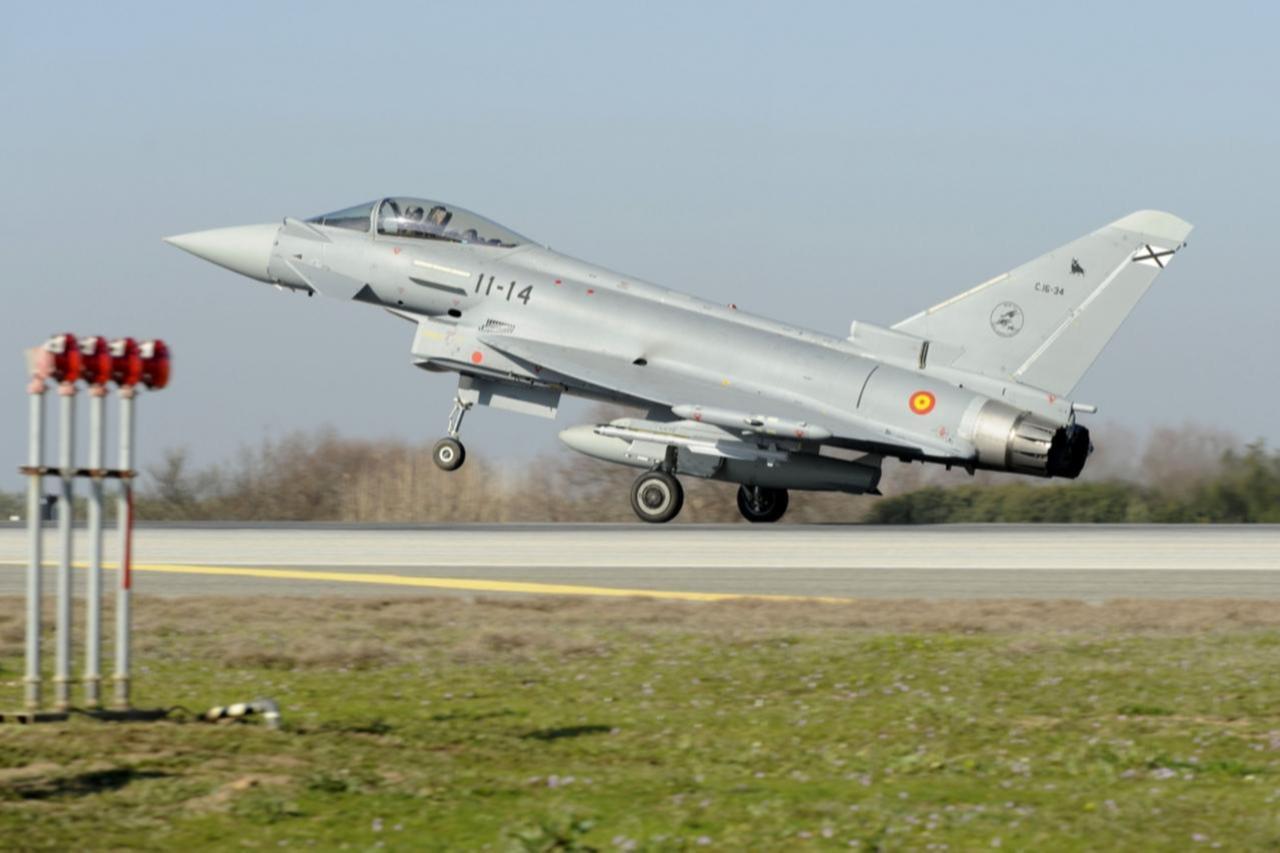
The Eurofighter Typhoon represents one of the world's most sophisticated multi-role fighter aircraft, featuring twin Eurojet EJ200 turbofan engines capable of supersonic speeds exceeding 2,495 kilometers per hour.
Mevlutoglu detailed the aircraft's distinguishing characteristics: "The Eurofighter Typhoon is a multirole fighter distinguished by its canard delta wing. Engineered with advanced aerodynamics and an innovative flight control system, it delivers exceptional agility and maneuverability."
A standout capability highlighted by the expert is the aircraft's ability to achieve supercruise—sustained supersonic flight without afterburner use. The Typhoon is available in both single-seat and twin-seat variants and can execute comprehensive air-to-air and air-to-ground missions.
Key technical specifications include a maximum altitude capability of 16,765 meters, an operational range of 2,900 kilometers, and a maximum takeoff weight of 23.5 tons. The aircraft features active electronically scanned array (AESA) radar technology and comprehensive NATO-compliant systems for data connectivity.
The mission systems feature the Captor-E AESA radar, defensive aids sub-system (DASS) for self-protection, advanced mission computer, Link 16 datalink, and electro-optical sensors. Electronic warfare systems, flare and chaff dispensers, and radar warning receivers enhance self-defense capabilities.
Weapons capabilities include a 27-millimeter Mauser BK-27 cannon and extensive payload capacity supporting advanced air-to-air missiles such as Meteor, AIM-120 AMRAAM, IRIS-T, and ASRAAM, alongside precision-guided munitions including Brimstone, Storm Shadow, Paveway series, and Taurus cruise missiles.
Mevlutoglu noted that "the Meteor stands out as one of the most sophisticated and capable air-to-air missiles in service today, featuring an extended range, a two-way datalink, and a dual-pulse rocket motor for superior performance."
The Typhoon acquisition serves as an interim solution while Türkiye develops its indigenous aerospace capabilities. Mevlutoglu highlighted the comprehensive scope of Turkish air power advancement across multiple platforms.
"Türkiye is advancing a series of fully indigenous projects for its air force, including the national air superiority fighter KAAN, the Anka 3 unmanned strike platform, and the Kizilelma unmanned multirole fighter, while continuing to effectively deploy armed UAVs such as Anka, Aksungur, Bayraktar Akinci, and TB2," he stated.
The expert noted Türkiye's pioneering position in integrated air operations: "With the Kizilelma now in serial production and expected to enter service soon, Türkiye will become one of the first nations to operate manned and unmanned fighter aircraft in tandem."
Mevlutoglu emphasized the KAAN program's unique status globally: "The national jet fighter KAAN stands out as the only next-generation fighter program in the Western world currently undergoing flight testing."
He concluded that while these indigenous initiatives signal a new era for Turkish air power, the phased development timeline necessitates interim capabilities. "As this phased roadmap progresses, preserving deterrence amid a region of intense military and technological challenges remains critical, positioning the Eurofighter Typhoon acquisition as a critical bridge."
Industry observers note that Türkiye's position as operator of both manned and unmanned fighter aircraft systems will place it among the first nations to deploy such integrated air power capabilities.